Culture shock in China
by Xia Zhang - Aug. 17, 2008 12:00 AM
Special for The Republic
While the Olympians and Olympic enthusiasts try to focus their attention on the Games, I cannot help but think about the culture shock they must be encountering in Beijing.
I say this from my own experience of being raised in one culture and living in another.
Unlike the culture shock people usually experience, mine is twofold. The first kind is what I went through when I first came to the United States; the second is what I experienced and continue to experience every time I go back to Beijing, my birthplace.
Let me give you a few examples of the first kind of culture shock.
The one I remember most was how I felt after a conversation with my husband, in which he mentioned that I hardly ever say, "Thank you."
I was just dumbfounded: "What does he mean by asking me to thank him? We are family!"
Well, in Chinese culture, if you say thank you to a family member, you are actually distancing yourself. Needless to say, I now say thank you almost profusely.
Another culture shock I encountered is how much people talk about politics here. I did not understand at the time why they did that. It seemed to me there was nothing they could do about it anyway.
Chinese culture traditionally discourages discussing politics. As a matter of fact, it was customary for teahouses in the old days to display a sign reading: "No politics."
Nowadays, people just gather together in Starbucks, which seems to be on every corner of Beijing streets.
The last culture shock I am going to mention is how differently body language is interpreted. Shortly after I came to the United States, I went to visit a girlfriend who had come to the States a year before. We were walking on the streets of New York, sightseeing, when I noticed that she was not willing to hold my hand.
Later on she explained to me that women don't hold women's hands and men don't hold men's hands in the United States.
Growing up, I was always holding hands with my girlfriends and there was no age limit to it. Well, I got rid of that habit more quickly than I thought I could.
As if the first kind of culture shock is not enough, now I have that of another kind. After living here for 20 years and getting used to the way of living here, I get culture shock when I go back to Beijing.
Here, we are so used to purchasing on credit. I buy everything on credit, including groceries. In China, it's just the opposite.
My mom had some furniture delivered to her house. She paid the delivery person 3,000 yuan in cash. We went to the store to buy her a refrigerator. We had to take 2,000 yuan with us. People even buy apartments in cash! There is such a thing as a credit card, but that is only for the elitists.
The way people drive in Beijing is a surprise to me. One time a taxi driver took a shortcut to get to my destination. He told me that it was a market and that he was not supposed to drive there. But, it would be fast because there would be no other traffic.
There we were zigzagging, avoiding the man on the left with a live chicken in a cage on the backseat of his bicycle, swerving around a pile of tomatoes spread out on the street and honking at a mom with a toddler in her arms, seemingly oblivious to the car behind her.
All of a sudden, out of nowhere, a truck came straight at us. Obviously, another driver had the same idea about the shortcut.
The truck got closer and closer. Neither driver had the inclination of slowing down or swerving. I held onto the handle tightly, closed my eyes and started praying. I did not know I was religious until then. When I opened my eyes and looked back, I saw the truck, the man on the bicycle, the mother and her toddler all sound and safe.
What shocked me most was how easily available alcohol is. You can buy liquor everywhere, even on the side of the streets from small vendors.
You can hold your gallon of wine you bought from a street vendor, singing while swinging the bottle as you walk home.
You can even take what's left in your beer bottle home after a meal.
One time I stayed in Beijing for a month. I have to say that I got a little too used to the ways of Beijing. Shortly after coming back, a girlfriend and I went out. I was drinking from a bottle in her car, when she asked me what I was drinking. I told her nonchalantly, "Vodka tonic."
In summary, my culture shock is really twofold. Sometimes I feel that I am neither fish nor fowl. The upside is that I have best of both worlds.
All said, I have the following suggestions for our Olympians and our Olympian enthusiasts in Beijing: Be thrifty with your "thank-yous." Avoid politics. Hold your friend's hand, if you dare. Take a lot of cash with you while out shopping (unless you want to shop at stores geared toward tourists). Don't follow the traffic rules as religiously as you do in the States (if you want to get somewhere quickly). Drink some readily available Chinese wine and beer. And most of all, embrace the differences of both cultures.
by Xia Zhang - Aug. 17, 2008 12:00 AM
Special for The Republic
While the Olympians and Olympic enthusiasts try to focus their attention on the Games, I cannot help but think about the culture shock they must be encountering in Beijing.
I say this from my own experience of being raised in one culture and living in another.
Unlike the culture shock people usually experience, mine is twofold. The first kind is what I went through when I first came to the United States; the second is what I experienced and continue to experience every time I go back to Beijing, my birthplace.
Let me give you a few examples of the first kind of culture shock.
The one I remember most was how I felt after a conversation with my husband, in which he mentioned that I hardly ever say, "Thank you."
I was just dumbfounded: "What does he mean by asking me to thank him? We are family!"
Well, in Chinese culture, if you say thank you to a family member, you are actually distancing yourself. Needless to say, I now say thank you almost profusely.
Another culture shock I encountered is how much people talk about politics here. I did not understand at the time why they did that. It seemed to me there was nothing they could do about it anyway.
Chinese culture traditionally discourages discussing politics. As a matter of fact, it was customary for teahouses in the old days to display a sign reading: "No politics."
Nowadays, people just gather together in Starbucks, which seems to be on every corner of Beijing streets.
The last culture shock I am going to mention is how differently body language is interpreted. Shortly after I came to the United States, I went to visit a girlfriend who had come to the States a year before. We were walking on the streets of New York, sightseeing, when I noticed that she was not willing to hold my hand.
Later on she explained to me that women don't hold women's hands and men don't hold men's hands in the United States.
Growing up, I was always holding hands with my girlfriends and there was no age limit to it. Well, I got rid of that habit more quickly than I thought I could.
As if the first kind of culture shock is not enough, now I have that of another kind. After living here for 20 years and getting used to the way of living here, I get culture shock when I go back to Beijing.
Here, we are so used to purchasing on credit. I buy everything on credit, including groceries. In China, it's just the opposite.
My mom had some furniture delivered to her house. She paid the delivery person 3,000 yuan in cash. We went to the store to buy her a refrigerator. We had to take 2,000 yuan with us. People even buy apartments in cash! There is such a thing as a credit card, but that is only for the elitists.
The way people drive in Beijing is a surprise to me. One time a taxi driver took a shortcut to get to my destination. He told me that it was a market and that he was not supposed to drive there. But, it would be fast because there would be no other traffic.
There we were zigzagging, avoiding the man on the left with a live chicken in a cage on the backseat of his bicycle, swerving around a pile of tomatoes spread out on the street and honking at a mom with a toddler in her arms, seemingly oblivious to the car behind her.
All of a sudden, out of nowhere, a truck came straight at us. Obviously, another driver had the same idea about the shortcut.
The truck got closer and closer. Neither driver had the inclination of slowing down or swerving. I held onto the handle tightly, closed my eyes and started praying. I did not know I was religious until then. When I opened my eyes and looked back, I saw the truck, the man on the bicycle, the mother and her toddler all sound and safe.
What shocked me most was how easily available alcohol is. You can buy liquor everywhere, even on the side of the streets from small vendors.
You can hold your gallon of wine you bought from a street vendor, singing while swinging the bottle as you walk home.
You can even take what's left in your beer bottle home after a meal.
One time I stayed in Beijing for a month. I have to say that I got a little too used to the ways of Beijing. Shortly after coming back, a girlfriend and I went out. I was drinking from a bottle in her car, when she asked me what I was drinking. I told her nonchalantly, "Vodka tonic."
In summary, my culture shock is really twofold. Sometimes I feel that I am neither fish nor fowl. The upside is that I have best of both worlds.
All said, I have the following suggestions for our Olympians and our Olympian enthusiasts in Beijing: Be thrifty with your "thank-yous." Avoid politics. Hold your friend's hand, if you dare. Take a lot of cash with you while out shopping (unless you want to shop at stores geared toward tourists). Don't follow the traffic rules as religiously as you do in the States (if you want to get somewhere quickly). Drink some readily available Chinese wine and beer. And most of all, embrace the differences of both cultures.


















































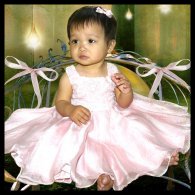
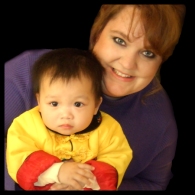
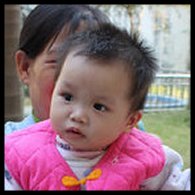
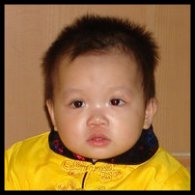






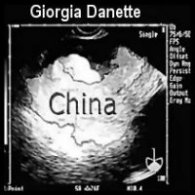

No comments:
Post a Comment